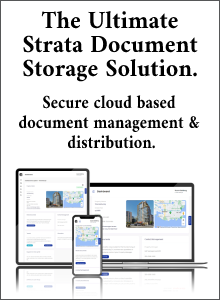
Using AI Chat Assistance for Strata Management
When leveraging AI Chat Assistance for insights into strata management, understanding a strata corporation, or obtaining legal guidance on strata-related issues, it’s crucial to consider a range of ethical implications:
By considering these ethical aspects, AI can be effectively and responsibly used to assist strata owners with their management.
Accuracy and Reliability
In the context of AI assisting Strata Managers in BC, accuracy and reliability involves ensuring that the information and advice provided by AI systems are both correct and dependable. This is particularly crucial in the realm of strata management, where decisions based on inaccurate or unreliable information can have significant legal and financial repercussions.
Strata laws and regulations in British Columbia can change frequently. AI chat assistance that is not updated regularly might provide outdated legal advice, leading to non-compliance issues. Strata management also involves complex financial aspects like budgeting, levies, and special assessments. Inaccuracies in these calculations can lead to financial mismanagement. AI systems providing suggestions for property maintenance must be accurate to avoid unnecessary expenses or overlooking critical repairs.
Ensuring the AI system is regularly updated with the latest strata laws and regulations in British Columbia will enhance accuracy and reliability. This can be achieved through continuous monitoring of legal changes and regular software updates.
Other ways to ensure accuracy and reliability include:
- Connecting the AI system with authoritative and up-to-date databases, such as government portals or legal databases specific to BC’s strata laws.
- Conducting periodic checks by legal experts or using a feedback system where strata managers can report inaccuracies.
- Using advanced data analytics to ensure financial calculations are precise and reliable. AI can process large amounts of data to provide accurate financial forecasts and budget recommendations.
- Tailor the AI system to the specific needs and regulations of British Columbia. This includes understanding the local real estate market, climate-related maintenance needs, and specific strata bylaws.
- Train strata managers in British Columbia on how to effectively use AI tools. Educate them on the strengths and limitations of AI, ensuring they can discern when to rely on AI advice and when to seek human expertise.
- Encourage the use of AI in conjunction with other sources of information. Cross-referencing AI advice with human expertise and other tools.
- Establishing feedback loops that allow strata managers to report back on the accuracy of AI-provided information for continuous improvement of the AI system.
- Ensure that the AI system is designed ethically, with a focus on accuracy and reliability, and not just on efficiency or cost-saving measures.
Privacy and Data Security
In today’s digitized world, the integration of AI Strata Assistance into the realm of strata management brings forth the paramount importance of Privacy and Data Security. As Strata Managers harness the capabilities of AI chat assistance to handle sensitive personal and financial information of residents, it becomes imperative to shield this data from unauthorized access, breaches, and potential misuse.
The handling of Strata Owner data, a critical component within AI chat assistance systems, is often fraught with risks of privacy breaches if not managed correctly. The vulnerability extends to the storage and transmission of electronic data, which are potential targets for hacking, unauthorized access, or interception. To mitigate these risks, adherence to privacy laws, such as British Columbia’s Personal Information Protection Act (PIPA), is non-negotiable for Strata Managers. These laws set the benchmark for handling personal information within private sector organizations and are integral to upholding the security and privacy of resident data within the ambit of AI chat assistance.
To ensure optimal privacy and security, a robust framework of measures is indispensable. This begins with implementing strong encryption for both data storage and transmission, a fundamental step in fortifying all systems and databases against external threats. Complementing this with stringent access control measures, such as two-factor authentication, is essential to limit data access strictly to authorized personnel.
Educating strata managers and staff on data privacy and security best practices forms the cornerstone of a proactive defense strategy. This involves regular updates on emerging threats and the formulation of effective strategies to preempt data breaches.
Embracing data minimization and retention policies is also advised, wherein data collection is restricted to only what is essential and retained strictly as per British Columbia’s legal requirements. Ensuring that AI systems comply with local privacy laws, and updating these systems in line with legislative changes, is critical for legal compliance. Embedding privacy considerations into the very design of AI chat assistance systems — a practice known as ‘privacy by design’ — is crucial. Alongside this, rigorous evaluation and monitoring of third-party service providers with access to personal data ensure they adhere to stringent privacy and security standards.
Finally, employing techniques like anonymization or data masking, particularly in scenarios where detailed personal information is not necessary, can significantly bolster the privacy aspect of AI.
Bias and Fairness
AI systems, including those used in strata management, rely heavily on data for training and decision-making processes. This data can often carry implicit biases, reflecting historical or societal inequalities. For instance, if the training data for an AI strata chat system is skewed towards certain demographic groups, the AI may develop biases, leading to unfair or discriminatory outcomes. This is especially problematic in decisions related to property management, resource allocation, or conflict resolution within a strata community.
To counteract this, it’s essential to ensure that these systems are trained on diverse and representative datasets. Moreover, continuous monitoring and updating of the AI algorithms are necessary to identify and correct any biases that may arise over time. Implementing fairness and ethical guidelines, and regularly auditing the AI system’s decisions for bias, can help ensure that the AI provides equitable and unbiased information and recommendations. This approach not only enhances the reliability and credibility of AI chat assistance but also promotes an inclusive and fair environment for all users, regardless of their race, gender, or socioeconomic status.
Transparency and Explainability
The concept of ‘Transparency and Explainability’ in AI systems is paramount, especially when it comes to AI chat assistance which deals with complex legal matters. Transparency in AI refers to the openness and clarity with which an AI system operates, ensuring that users can understand how and why a particular decision or piece of advice was given. This is particularly important in strata management where decisions can have significant legal and financial implications. For users to trust and rely on AI assistance, they need to have a clear understanding of how the AI processes information and reaches conclusions.
Explainability takes this a step further by not only making the AI’s processes transparent but also ensuring that the reasoning behind these processes is understandable to the average user. This could involve providing clear, user-friendly explanations for the AI’s advice, which can be particularly crucial in legal scenarios where the rationale behind a decision is as important as the decision itself. By prioritizing transparency and explainability, AI strata assistance systems can foster greater trust and accountability, ensuring that users are confident in the advice provided and understand the basis for AI-driven decisions.
Legal and Ethical Compliance
Ensuring that AI systems comply with all relevant laws and ethical guidelines is crucial, especially in fields governed by specific regulations such as strata law and real estate. This compliance is not just about abiding by the existing legal framework, but also about aligning AI practices with broader ethical principles that govern fairness, privacy, and transparency.
Adherence to strata law and real estate regulations means that AI systems used in strata management must be programmed to respect and uphold the specific legalities of property management, ownership rights, and community living. These laws can vary significantly by region, so the AI must be adaptable and responsive to the legal nuances of different jurisdictions. Additionally, given that AI systems often handle sensitive personal data, compliance with data protection and privacy laws becomes imperative. This includes following standards for data collection, storage, and sharing, ensuring that residents’ privacy is safeguarded and that the AI system is not used for unauthorized surveillance or data harvesting.
Beyond legal adherence, ethical compliance is equally important. AI chat assistance must operate on principles that promote equitable and unbiased decision-making, ensuring that all residents are treated fairly and without discrimination. Ethical AI practices also involve being transparent about how the AI makes decisions and ensuring that these decisions can be explained and justified in human terms. This level of ethical commitment fosters trust among users and helps build a foundation for AI to be accepted and integrated effectively into the strata management process.
Legal and ethical compliance in AI chat assistance is about more than just following the letter of the law. It’s about integrating the AI into the strata management ecosystem in a way that respects legal boundaries, protects resident rights, and upholds high ethical standards, thereby ensuring that the technology serves the community responsibly and beneficially.
User Consent and Control
This concept revolves around empowering users to have a say in how their personal information is collected, used, and managed by AI systems. In the context of strata management, where AI might handle a range of sensitive data, from personal contact details to financial information, it is imperative that users are not only aware of but also in control of how their data is utilized.
Obtaining informed consent is the cornerstone of this principle. This means that users should be clearly and comprehensively informed about what data the AI system will collect, how it will be used, and for what purposes. Consent should be a deliberate action taken by the user – it should not be assumed or hidden in the fine print. This process respects the user’s autonomy and privacy, allowing them to make an informed decision about their participation in AI strata assistance services.
In addition to informed consent, providing users with the ability to control their data is crucial. This includes options to easily view the data collected about them, update or correct it, and importantly, the ability to request its deletion. The right to be forgotten, where users can have their data removed from the system, is an important aspect of data control. This ensures that users are not only participants in the data collection process but also have the ongoing ability to manage their data.
These practices are not just about legal compliance, but they also build trust between the users and the AI system. When users understand that they have control over their data and that their consent is valued, they are more likely to engage positively with the AI. This approach to user consent and control is therefore not only an ethical imperative but also a practical strategy for building effective and user-friendly AI strata assistance systems.
Impact on Human Employment
The integration of AI into strata management brings with it significant considerations regarding its impact on human employment. As AI systems and AI chat assistance tools become more prevalent, they have the potential to automate various tasks that were traditionally performed by human workers. This shift can lead to concerns about job displacement, where employees may find their roles being reduced or entirely replaced by AI-driven solutions. Such a transition necessitates a thoughtful and ethical approach to how these changes are managed, with a focus on the human impact.
Rather than simply replacing human workers, there should be an emphasis on how AI can augment human work, enhancing efficiency and productivity while retaining a human touch where it is most valuable. This approach helps in creating a balanced work environment where AI and humans work in tandem, leveraging the strengths of both.
Furthermore, for those whose roles are significantly impacted, opportunities for retraining or upskilling become essential. It’s important to provide these employees with the training and education necessary to adapt to the changing work landscape. This could involve learning how to operate and manage new AI systems or transitioning to different roles within the organization that are less susceptible to automation. By investing in the development of their workforce, companies can not only ease the transition to more AI-driven processes but also demonstrate a commitment to their employees’ growth and future employability.
In summary, the introduction of AI in strata management should be handled with careful consideration of its impact on human employment. Ethical management of this transition means recognizing the potential challenges and actively working to mitigate them through strategies like job augmentation, retraining, and upskilling. This approach not only helps in safeguarding the workforce against displacement but also paves the way for a more skilled, efficient, and forward-looking work environment.
Avoidance of Over-reliance
While AI strata assistance tools offer significant benefits in terms of efficiency and data processing capabilities, it’s important to recognize their limitations, especially in matters requiring deep legal understanding and human nuance. Users of AI in strata management should be mindful that these systems are designed to assist and inform rather than serve as a complete substitute for human judgment.
In the realm of legal decision-making, where the subtleties of law, precedent, and ethical considerations play a significant role, the nuanced understanding and contextual judgment of human professionals remain irreplaceable. AI systems, despite their advanced analytics and pattern recognition capabilities, do not possess the ability to fully comprehend the complexities of legal contexts in the way a human professional can. Therefore, relying solely on AI for legal decisions could lead to oversimplified conclusions or miss critical aspects that only human expertise can discern.
It is, therefore, advisable to use AI as a tool to augment and enhance human decision-making processes, rather than replace them. AI can provide valuable insights, aggregate and analyze large volumes of data, and identify patterns that might not be immediately apparent. However, the final decision-making responsibility should rest with skilled human professionals who can interpret AI-generated information with critical judgment and legal expertise.
This balanced approach ensures that while the efficiency and capabilities of AI are leveraged, the invaluable element of human insight and judgment in complex legal scenarios is not undermined. By avoiding over-reliance on AI, strata management can benefit from the best of both worlds: the advanced capabilities of AI and the irreplaceable value of human expertise and judgment.
By focusing on these solutions, Strata Managers in British Columbia can effectively leverage AI to enhance their decision-making processes, leading to more efficient and compliant strata management.
Not Legal Advice - The material provided on the StrataPress website is for general information purposes only. It is not intended to provide legal advice or opinions of any kind and may not be used for professional or commercial purposes. No one should act, or refrain from acting, based solely upon the materials provided on this website, any hypertext links or other general information without first seeking appropriate legal or other professional advice. These materials may have no evidentiary value and should be checked against official sources before they are used for professional or commercial purposes. Your use of these materials is at your own risk.



